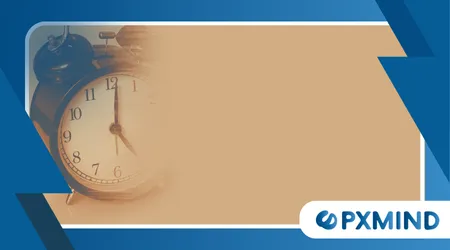Mindhacks to Improve Your Memory for Good

Mindhacks to improve your memory aren’t about learning faster—they’re about remembering smarter. In a hyperconnected world where distractions dominate, memory has become a silent casualty.
Anúncios
Ever walked into a room and forgotten why? Or stared at someone you just met, blanking on their name? You’re not alone—and it’s not just aging.
Memory decline is affecting more young adults than ever, thanks to fragmented attention, sleep deprivation, and stress.
A study from the Harvard Medical School (2023) showed that even brief daily interruptions—like notifications or switching tasks—can reduce working memory performance by up to 20%.
We’re not short on information; we’re starved for strategies that help our brains hold onto what matters.
1. Prime Your Brain with Sleep and Rhythm

Forget supplements if you’re skipping sleep. Memory consolidation—the process of converting short-term into long-term memory—happens while we sleep, especially during deep and REM stages.
Think of your brain as a library. Each night, sleep is the quiet librarian filing your experiences into the right mental shelves. Skip sleep, and you’ll lose the catalog system.
To hack this, prioritize circadian alignment. That means consistent sleep and wake times, exposure to morning sunlight, and no blue light after 9 p.m.
Creating a bedtime ritual with calming habits, such as reading or meditation, helps signal to your body it’s time to recover.
Studies published in the journal Nature Neuroscience revealed that people with healthy circadian habits perform better in memory recall tasks, especially verbal and spatial memory.
Want your brain to retain more? Let it rest more.
Also read: How the Brain Learns: A Simple Guide
2. Practice the “Recall Loop” Daily

Reading something once doesn’t mean you’ve learned it. The real power lies in retrieval.
That’s why one of the most effective mindhacks to improve your memory is the deliberate act of recalling information repeatedly over time.
Use the “Recall Loop”: After learning a new concept or task, actively test yourself—verbally or in writing—within 24 hours. Repeat after 3 days, then again in a week.
This technique, supported by researchers at The Learning Scientists, strengthens synaptic connections by forcing your brain to “reach” for information. It’s more effective than re-reading or highlighting.
Example: After attending a webinar, write down three key points from memory. Later, try explaining them to a friend. Teaching is a powerful form of mental reinforcement.
+ The Science Behind Productive Learning Habits
3. Associate New Info with Emotion or Story
Memory sticks when it’s emotional or meaningful. Ever noticed how you remember the lyrics to a breakup song from 10 years ago, but not what you had for lunch last Thursday?
Our brains are wired to prioritize emotional and narrative content. This is why adding context—especially personal or visual—dramatically boosts retention.
Example: If you meet someone named Daisy, imagine a daisy growing from their head. Silly? Absolutely. But it works. The weirder the image, the stronger the memory anchor.
This is the foundation of the “memory palace” technique used by memory champions worldwide.
Neuroscientific research published in Neuron confirms the brain lights up more when processing information with emotional associations.
4. Move Your Body, Remember Your Mind
Exercise isn’t just for your waistline—it’s fuel for your hippocampus, the brain region responsible for memory.
Aerobic activity like brisk walking, cycling, or swimming increases brain-derived neurotrophic factor (BDNF), a protein that supports neuron growth and memory function.
The American Psychological Association reported that individuals who exercised moderately for 30 minutes, three times a week, showed improved verbal memory and processing speed after just 12 weeks.
You don’t need intense training. Even 15-minute walk breaks during work can refresh your cognitive performance. When your body moves, your memory grooves.
+ How to Learn Faster with Proven Mindhacks
5. Digital Detox = Cognitive Clarity
Your phone is not your brain’s friend. Constant digital input trains your brain for distraction, not retention. The more we rely on devices, the less we remember.
One of the most underused mindhacks to improve your memory is limiting passive scrolling and replacing it with intentional digital silence.
Set device-free hours. Use minimalist apps like Notion to structure what matters and block the rest. Engage in analog activities like journaling, sketching, or board games that involve memory use.
A study in Computers in Human Behavior found that people who took short digital breaks throughout the day performed 23% better on memory-based tasks than those with constant screen exposure.
6. Strategic Nutrition for Long-Term Retention
Yes, your plate influences your brain. The Mediterranean diet, rich in omega-3s, leafy greens, and antioxidants, is directly linked to better cognitive performance.
A 2024 review by the Journal of Nutrition, Health and Aging linked regular intake of wild salmon, blueberries, walnuts, and olive oil with enhanced episodic memory.
Avoid refined sugar and ultra-processed snacks—they create inflammation and impair neuron signaling. Even your hydration matters.
Mild dehydration has been shown to reduce attention and short-term memory performance.
7. Make Boredom Your Ally, Not Your Enemy
Here’s a twist: boredom can be productive for memory. When your brain isn’t flooded with input, it shifts to Default Mode Network (DMN)—the mental space where daydreaming, creativity, and subconscious memory processing occur.
Letting your mind wander (without a screen in hand) allows deeper encoding and reflection. This is why ideas strike in the shower or while driving.
Incorporate micro-moments of nothingness. Just stare out the window, walk without earbuds, or sip coffee without distractions. Let your brain breathe.
8. Reduce Multitasking, Increase Mind Presence
Multitasking is not a skill—it’s a cognitive bottleneck. The brain can’t store new information efficiently while task-switching. Instead, practice “deep focus sprints”: 25-minute blocks of undistracted attention on one task.
Use a timer, silence notifications, and give your mind space to absorb. This habit trains the prefrontal cortex to stay present, increasing the retention of information and minimizing mental clutter.
Ask yourself: what if memory isn’t about how much you learn—but how fully you pay attention?
9. Surround Yourself with Memory Triggers
Your environment subtly shapes how you remember. Curate your space to support memory retrieval—use visual cues, color-coded reminders, physical sticky notes, or sensory anchors like scent.
Analog clocks, physical books, and even memory-specific playlists can activate stored information. One study by MIT (2023) revealed that certain ambient sounds (like lo-fi music) can improve focus and information absorption.
10. Play, Create, Repeat
Games aren’t a waste of time when designed for cognition. Crosswords, memory cards, chess, and even select video games enhance working memory and neural plasticity.
Art, music, and learning a new language also promote neurogenesis, the birth of new brain cells.
If you’re seeking mindhacks to improve your memory, consider hobbies as mental reps. Choose activities you enjoy and can engage with consistently—they’ll do more than any app ever could.
11. Memory is a Skill—Not a Trait
Despite myths, memory is not a fixed trait you’re born with. Like any skill, it responds to how it’s trained. Neuroplasticity allows the brain to form new pathways well into adulthood, provided we create the right conditions.
One of the easiest and most sustainable improvements? Stay curious. Read diversely, ask questions, and reflect on your experiences. Curiosity activates dopamine pathways, which support stronger memory formation.
12. Leverage Technology—But Wisely
Tech isn’t the enemy—it’s about how we use it. Tools like Anki (spaced repetition flashcards) or habit trackers can support memory, especially for complex information. The key is intentionality.
Instead of letting notifications dictate your attention, use tech to reinforce routines, track patterns, and revisit knowledge with smart systems. A hybrid of analog and digital works best.
To explore reliable digital strategies for memory support, visit this detailed resource from the Mayo Clinic.
FAQ — Frequently Asked Questions
Q1: Are memory problems always a sign of aging?
Not necessarily. Stress, poor sleep, digital overload, and lack of focus often play a bigger role. Memory is malleable and can improve at any age.
Q2: How long until I see results from these mindhacks?
Some techniques, like better sleep and digital detox, offer quick benefits. Others, like exercise or spaced repetition, show results after a few consistent weeks.
Q3: Are there natural supplements that help?
While some, like omega-3s and B-complex vitamins, have science-backed benefits, lifestyle changes generally deliver stronger and longer-lasting results.
Q4: Can memory loss be reversed?
Mild memory issues caused by lifestyle can often be improved. But persistent or worsening memory loss should be evaluated by a healthcare provider.
Final thought: You’re not losing your memory—you’re just missing the right tools. Try a few of these mindhacks to improve your memory, and you may surprise yourself.
